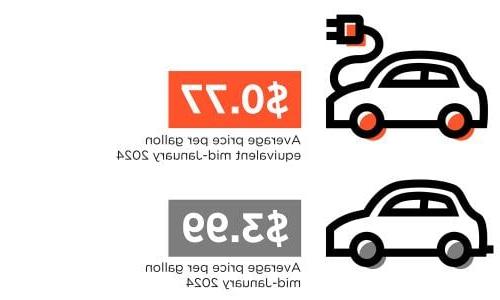由数十万年的高温和高压形成, oil is an energy-rich fossil fuel that impacts nearly every aspect of modern life. Crude oil can be refined into any number of plastics and petroleum products, 或者变成液体燃料,比如汽油和柴油.
Extracting and refining oil requires substantial amounts of energy and can lead to profound land, 空气, 水的影响. When it's then used as a fuel and burnt, oil releases a number of 空气borne pollutants and toxins. 这些包括 成雾粒子 that cause 哮喘 and other health problems, and carbon dioxide, a major heat-trapping gas. 在美国, 石油的使用d for transportation is directly responsible for around 30 percent of the nation's global warming pollution.
These and other impacts may worsen as easily-accessed sources of liquid oil dry up. So-called "new" sources of oil—such as tar sands and tight oil—come with new problems. 沥青砂的提取和提炼需要更多的能源, 在这个过程中,温室气体的排放量会增加三倍. 致密油 生产 can involve extensive flaring, increasing its total pollution. These additional emissions mean that the dirtiest sources of oil can add as much as an extra ton of pollution per year for the average car.
尽管它们有影响, unconventional oils account for a rapidly increasingly percentage of oil 生产. 在美国,只有致密油 增加 从2011年国内产量的23%到2013年的45%.
但现状并不能得到保证. Widespread use of cleaner fuels like electricity and biofuels could save around three million barrels of oil per day by 2035: fuel efficiency could save over 5 million. 已经取得了进展, 随着越来越多的电动汽车上路, 每年都有新的生物燃料设施投入使用, 历史性的燃油效率标准即将生效. And while drivers and policy makers support this transition to a cleaner transportation system, oil companies can take steps to ensure that the oil we do use doesn't get dirtier.

常规石油与非常规石油
While sources of oil have always varied, most crude oil currently comes from underground reservoirs. 液体在室温下,容易钻, this "conventional oil" helped contribute to a century of cheap and easy 生产.
But supplies of conventional oil are not keeping pace with expanding demand. 随着长期价格的上涨, the economics of unconventional oil—long regarded as too difficult and expensive—are changing. 这些油有不同的形式, 需要不同的提取和加工方法, 而且往往会对环境造成更严重的影响.
致密油, or "shale oil," is extracted from shale deposits using hydraulic fracturing, or "水力压裂.“这个过程既能产生液体燃料,也能产生天然气, 有时燃烧掉或“燃烧”,增加了致密油的全球变暖污染总量. 了解更多致密油.
油砂, or "oil sands," are an unconventional, molasses-like oil found predominantly in Canada. 与Keystone管道系统相关, tar sands are extremely energy-intensive to extract and carry substantial ecological impacts. 了解更多关于沥青砂的信息.
油页岩 is a rock-like unconventional oil that requires mining and very high heat to become oil. Its high cost means that oil shale isn't presently a commercially viable product. 了解更多关于油页岩的信息.

石油的影响
Turning oil into fuel is a complex process, with environmental and human impacts at every stage.
石油是通过钻探、水力压裂或采矿提取的. Drilling can lead to costly oil spills and life-threatening accidents, as evidenced by the 2010年深水地平线灾难. 某些钻井, 水力压裂, and mining operations involve the venting and burning of methane or natural gas, 导致全球变暖排放增加. And water used in tar sands mining has created large toxic storage ponds, including nearly 70 square miles of tailing ponds in Alberta Canada alone.
一次提取, 原油通过管道运输, 驳船, 油轮, 火车, and trucks to processing facilities where it's refined into usable products. 运输过程中的石油泄漏 越来越普遍 而且很难清理, 而提炼石油是非常耗能的, 特别是非常规石油.
使用时, 一加仑汽油排放约19磅全球变暖气体, 与提取过程中产生的大约5到15磅相比, 生产, 和交付. 汽油和柴油造成的空气污染也与癌症有关, 哮喘, 支气管炎, 以及其他健康影响.
在国家层面上,石油与 深刻的国家安全 问题和成本驱动因素 数十亿美元 每年都去打水泵.
U减半.S. 石油的使用 会有助于减轻这些影响吗. 石油 companies can also help: many emissions from oil operations can be prevented or minimized, 而最肮脏的石油来源可以完全避免.





